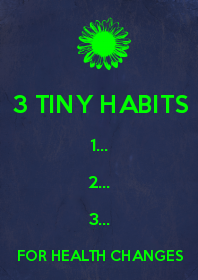|
Fitness Guru The new year is a perfect impetus to jump-start fitness and health goals—a fresh start. But how do you keep it simple, so you stick with it and actually reach the goals that you want? Change is challenging, and what’s missing for most of us is specifics: a SMART plan, specific, measurable, attainable, relevant and timely. Today we have unprecedented instant access to good coaching, in the form of apps and smartphones. As a result of more mobile technologies, we have online communities, like Facebook with more than 900 million users, and You Tube, where more than 72 hours of video are uploaded every minute. You can find apps that charge you $5 for skipping going to the gym, like Gym-Pact’s aggressive take on motivation, or entertaining gaming and tracking sites that count calories: such as www.rexbox.co.uk/epicwin and www.myfitnesspal.com. Among the thousands of health and fitness apps, a few stand out that are lifestyle and behavior focused:
Stanford professor B.J. Fogg teaches classes about habits. “I’m fascinated with how habits form. I believe that to design new habits for ourselves or for others, the best starting point is to do what I call ‘tiny habits.’†His goal is to help you practice the skill of creating new habits. I believe you can get better at creating new habits. Much like a pianist who practices scales, or a chef who practices knife skills, people can practice the skills of creating habits. I was hooked when B.J. suggested that after brushing your teeth, floss one tooth. For me, flossing is one more thing that keeps me from getting into bed sooner. The criterion are that you choose a behavior that you do at least once a day (brush my teeth), takes less than 30 seconds and requires little effort. The habits don’t have to be earth-shattering, but simple ordinary things that are useful in your life. By anchoring the new tiny habit behavior after an extremely reliable habit, you succeed in creating a small change (teeth flossed—bed sooner).
This goal-setting website began with a group of Yale economists to help users achieve goals and increase productivity with commitment contracts. They point out that for many of us who want to be on time, eat less sugar, lose a few pounds or stop procrastinating on a project, it’s not always that simple. The site is based on two principles of behavior science: 1. People don’t always do what they claim they want to do. 2. Money talks, as you put money on the line.
Healthmonth.com is a game in which you choose your own rules for the month and compete with other players. Choices can be anything from taking a multi-vitamin a day to limiting alcohol. You’re encouraged to experiment with what works best for you and deciding on which challenges are better suited for you. You can post self-created rewards and punishments, such as donating to a charity or eating a head of lettuce if you didn’t do what you said you would. The site challenges you by asking how important or difficult the rule is and whether you think you can pull it off, so you have accountability.
Before committing to a new app or site, make sure it’s a good fit for you, so your time will be well spent. Let them inspire you in the coming new year. Connie Aronson is an ACSM health and fitness specialist located at the YMCA in Ketchum. Visit her online at www.conniearonson.com.
|
|
|
|||
|
|









